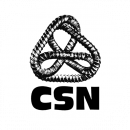Need help?
Here are some options:
1. Talk to a peer helper
The CSN’s peer helpers are trained to welcome you, listen to you, and help you find effective help. Check with your union to find out who to talk to.
2. Consult your company’s or organization’s Employee Assistance Program (EAP), if it has one.
Although offered by the employer, these services are confidential and may provide temporary help to restore your wellbeing. These programs sometimes offer services through various professionals and thus may vary from one location to another. Do not hesitate to ask around – they are sure to have something for you.
3. See a doctor
A trusted family doctor is a health care professional who can diagnose and treat physical and psychological health conditions. If you have a doctor available, they can certainly help you.
4. Call Info-santé or Info-sociale (811)
If you have health concerns, a resource person can advise you on how to approach your situation as safely as possible. Dial 811 to reach Info-Santé or Info-Sociale.
A MUTUAL AID NETWORK IS...
A support network of trained peer helpers, known as “mutual aid providers.” Mutual aid providers are concerned with quality of life, providing help, and promoting solidarity among colleagues.
Mutual aid providers are…
Conscientious, attentive to others, and to their work environment. They are familiar with institutional and community resources and will, when necessary, refer colleagues experiencing difficulties to these resources. Mutual aid providers are a reassuring presence in your workplace, always available and nearby.
They may be of invaluable assistance, for example, to persons experiencing psychological distress or problems associated with mental health, alcoholism or drug addiction, domestic violence, or problems in returning to work.
EVERYDAY MUTUAL AID – A PREVENTION RESOURCE
Whether due to personal or professional difficulties, everyone experiences difficult times in their life.
The CSN supports and promotes the development of mutual aid networks in the workplace. In 2010, the union instituted a National Day of Caring, held every February 2.
Ten benefits of having a mutual aid network:
- Helps improve psychological health and quality of life in the workplace in a spirit of solidarity.
- Strengthens social supports – a powerful protective factor for psychological health.
- Makes assistance more accessible, being based on equal relationships among peers.
- Detects distress signs proactively and acts quickly, before a person’s situation can deteriorate.
- Complements and promotes the Employee Assistance Program (EAP)
- Creates meaningful and collaborative relationships.
- Fosters positive connections between people, recognizing and respecting differences.
- Supports those who are experiencing difficulties.
- Makes your work environment a more humane place.
- Suggests ways to discuss issues in the workplace.
START A MUTUAL AID NETWORK IN SIX STEPS
1. Contact the mutual aid leader in your area, who can provide information and support. See the list of leaders by region.
2. Identify the mutual aid committee representative on your union’s Executive Committee. Their role is to serve as a link between the Executive Committee and the Mutual Aid Committee, which is comprised of mutual aid providers.
3. Recruit the local caregivers. Try various recruitment avenues: general meetings, union newsletter, bulletin boards, approaching people in your community directly who serve in similar roles, etc.
4. Access training adapted to your needs and those of your community. A short training session is available on basic techniques (detecting, approaching, listening, and referring), assistance resources, and implementation of the network. The representative responsible for mutual aid in your region can help you identify your training needs and inform you of the available options.
5. Develop an action plan. The representatives in charge of the Executive Committee and the Mutual Aid Committee can develop an action plan according to the local situation and the various resources at their disposal. Training is available to provide guidance.
6. Take action in the workplace by implementing the action plan.
Regional
representatives
Below is a list of regional representatives from the CSN’s thirteen Regional Councils.
Available Training Courses
Mutual Aid Network
This course is offered by the CSN over two non-consecutive days. It allows participants to acquire the listening and support skills needed to help coworkers experiencing psychosocial problems such as drug addiction, mental health, violence, and more. The course also aims to structure the implementation of a mutual aid network adapted to the realities of the workplace. Contact the responsible representative at your Regional Council for more information.
Mental Health and Work Structures
This course allows participants to develop their expertise in the prevention of psychological health problems in the workplace, and to identify risk factors in work structures. Participants will learn how to propose a union approach that uses prevention to safeguard psychological health in the workplace. The course lasts two days. Visit your federation’s website to find out about upcoming training dates.
Violence and Harassment in the Workplace
This two-day training course covers basic notions of violence and harassment in the workplace and demystifies the various relevant concepts. Tools for prevention and support are discusses, together with the various legal recourses, in order to plan prevention, intervention, and follow-up strategies for the workplace. Visit your federation’s website to find out about upcoming training dates.
Violence and Harassment Prevention, Level II
This two-day course complements the above violence and harassment prevention session. It focuses on policy analysis, the union’s role in intervention, and the importance of positioning oneself to be effective in resolving complaints and harassment issues. Visit your federation’s website for upcoming training dates.
SUPPORT AND MUTUAL AID RESOURCES
SUBSTANCE ABUSE AND ADDICTION
Mental health
FAQ: MUTUAL AID NETWORKS
Que ce soit pour faire la promotion de l’entraide, de votre réseau d’entraidantes et d’entraidants, ou de sensibiliser vos membres sur différentes thématiques, plusieurs outils sont disponibles.
Promotion de l’entraide
Développement du réseau d'entraide
Thématiques
Civilité
Dépendances
Détresse chez les jeunes
Deuil
Santé psychologique au travail
Violence et harcèlement
Violence conjugale
Outils pour les entraidantes et les entraidants


